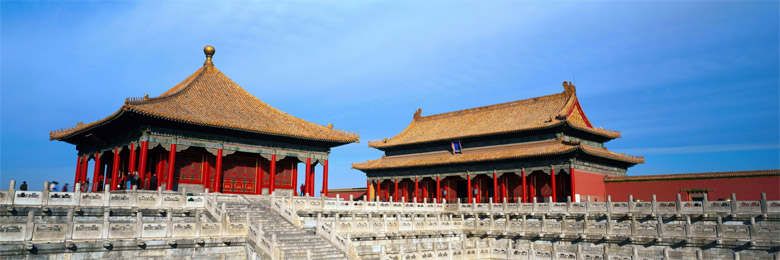“[Parents] want everything their children do to help them earn more money in the future, have a more upscale life; music and art cannot give their children these things,” explains Maybe Mars’ Fan. “In addition to daily homework, most parents give their children additional tutoring classes, rather than encouraging them to learn musical instruments, to build and cultivate their inner beauty.”
Yet there is a dichotomy when one takes stock of musicians in China’s underground music scene, where almost everyone found music on their own. Echoed again and again are the sentiments that formal music educations do not lead to the creation of real musicians, and that academic and technical training can sometimes negate a true interest in or appreciation for music.
“Although everywhere in China there is music, studios, and other training institutions, in actuality, most schools and parents don’t understand what art is. They force children to learn musical instruments, learn classical music for the sake of comparisons; the families might not even have a single classical music CD,” explains guitarist Steven Sill of the retro rock band Cat Machine. “These kinds of distorted values do not allow children to enjoy music.”
Like many independent Chinese musicians, Sill and his bandmates are self-taught, and propelled forth by a passion for the artform. “We first fell in love with rock and roll, then learned musical instruments,” Sill continues. “It’s a very natural process, which likely makes it easier to achieve certain results.”
Fan Yang (杨帆), the vocalist and guitarist of Ourself Beside Me, is likewise a self-taught musician and composer. She, too, sees the fallacy and social implications of forcing children to heartlessly study art.
“Chinese parents are actively having their children study art, but within these positives are some negative factors. More and more parents are encouraging their children to study art not for a love of the art in itself – and Chinese people’s desires to want a “good face”, peer pressure, [and] adding points to entrance exams are all factors,” says Yang. “[Which] results in many people who grew up learning music but don’t like music – might even abhor art; I think it is very depressing.”
There are, however, rare exceptions – as well as signs that these trends may be changing for younger generations as more and more Chinese musicians achieve commercial success through art.
“Certain Chinese indie rock bands have achieved domestic success and done high profile international tours, which has in turn trickled down to influence younger generations of college-aged musicians for whom it is far more socially acceptable to choose music as a pastime or, in rare cases, a profession,” explains Feola of Pangbianr.
Scarlett Li (李岱), founder of the DIY and multi-city festival, Zebra Festival (热波音乐节), also has a hopeful outlook. “Many families have begun to realize that arts educations are important to a child’s physical and mental development – that it plays a key role in shaping a child’s character and personality. To become elegant is just one part of it. Becoming a person with true grace and romance is what music and art can offer you, as well as your taste and personality.”
“[家长]希望孩子所做的一切都能使他们将来挣更多的钱、有更高档的生活,而音乐和艺术给不了他们的孩子这些。除了日常课业,家长大多会给孩子报各科辅导班,而不是说鼓励孩子学学乐器,陶冶情操,”兵马司的樊晏说。
然而当人们把目光投向中国地下音乐这一真正制造音乐的环境时,分歧产生了。人们知道所谓的正统音乐教育并不能培养真正的艺术家,学院派的,机械的训练有时是对真正的音乐及对音乐的欣赏的否定。
“虽然中国到处都是琴行、画室等培训机构,但实际上绝大部分学校与家长不懂什么是艺术。他们强迫孩子学习乐器、学习古典音乐的目的是为了攀比,家里可能一张古典音乐的CD也没有。这种扭曲的价值观并不能使孩子享受音乐,” 机械懒猫的吉他手 Steven Sill说。
“我们乐队跟中国的大部分乐队一样,先爱上摇滚乐,再学习乐器,很自然的过程,反而更加容易在音乐上取得一定的成绩,” Sill 继续说。
杨帆,Ourself Beside Me 乐队的主唱兼吉他,也是一位自学成才的音乐家兼作曲家。她也认为这个社会对强迫孩童学习艺术有着一种病态的理解和暗示。
“在中国家长对小孩学习艺术是积极,但这种积极里面有一些负面的因素,更多的家长鼓励小孩学习艺术不是对艺术本身的热爱,而是一种中国人特有的好面子、攀比心理,考试可以加分等社会因素。 导致很多从小学习音乐的人反而更不喜欢音乐,甚至痛恨艺术,我觉得非常悲哀,”杨帆说。
但在这样的大环境中也有少数例外 – 越来越多的中国音乐家正通过自己所获得的商业成就来试图为年轻一代改变艺术学习的现状。
“一些中国独立摇滚乐队已在国内取得一定成功且在国际巡回演出中获得了较高的认知度。这些乐队正缓慢地对年轻一代音乐家产生影响。那些受所谓正统教育,被社会认同的孩子可能会将音乐视为一种消遣,甚至事业。”博客网站旁边儿的 Feola 解释说。
“很多家庭已经开始意识到艺术教育对孩子身心发展的重要性,这对孩子的品格塑造和人格形成有关键作用,气质优雅是表象,但内心的优雅和浪漫的性情,才是音乐和艺术给人情操上最大的陶冶,”李岱,热波音乐节的创始人对中国艺术教育的前景表示出信心。热波音乐节是一个自主式的,在中国多个城市开展的音乐节。
Listening Station #3: Folk-Inspired Sounds
Downloads and streams from a selection of our favorite Chinese musicians.

ShanRen (山人) – “Study”
Hanggai
“Much is happening in China as we speak: new sounds arise, new styles are formed, new topics [are] discussed and several culturally significant revivals are taking place as we speak… According to many industry insiders, after London and New York, Beijing is quickly rising to become the most creative city for new music in Asia.” – Julia Fortuny of the record label Maybe Mars
“就在我们聊天的当下,许多事情正在中国发生:新歌手的出现,新曲风的形成,新音乐话题的讨论以及多元文化复兴…许多业内人士认为,继伦敦和纽约之后,北京是亚洲范围内新音乐发展最快,创造力最强的城市。” – 兵马司的 Julia Fortuny

A Country With One True Cultural Capital
一个有着真正的文化中心的国家
Throughout the country, diamonds can be found in the rough soil of the underground: Shanghai clubs boast an internationally-minded DJ scene; Inner Mongolian artists innovatively meld folk influences with modern sounds; Yunnan province musicians pull inspiration from nature and ethnic roots; Wuhan thrives with home-grown attitude; and so on. Yet, by all accounts, the epicenter of China’s live music also happens to be its long-standing historical and culture capital: Beijing. There, a music scene thrives in contrarian ways. In public spaces, government-approved music festivals bring in corporate sponsorships and acts from around the country and globe – while hidden near century-old ruins, bands perform to handfuls of people in dingy clubs and practice in underground rehearsal spaces.
“Beijing is contemporary China’s political and cultural center, and rock n’ roll’s biggest stage. Nearly all of the important culture, media organizations and record labels are all gathered here. If, for example, another city’s band needs the resources to succeed, they cannot be without Beijing,” says Lu of AV Okubo.
“I think that Beijing is an incredibly cool city, with a lot of people, a lot of chaos – and it has gathered a lot of interesting young people with ideals, and a great hunger and desire,” explains Wang of The Gar and White+. He parallels the “grey” feeling of Beijing with that of New York City, noting that the first time he went to New York, its energy and familiarity were shockingly reminiscent to that of Beijing.
在中国,闪耀的钻石要在艰苦的地下音乐土壤中发掘:上海的酒吧夜店是培养国际化DJ的温床;内蒙古的艺术家们正运用他们的创意将传统民谣与现代音乐结合起来;云南音乐家们从大自然和民族文化中寻找灵感;而武汉的本土音乐态度正在衍生;等等。然而,正如中国长久以来的历史和文化中心一样,中国的现场音乐中心是北京。在北京,音乐正以人们意想不到的方式蓬勃发展。在公开场合,经政府允许的各种音乐节带来了各方企业赞助以及国内乃至国际的艺术家 – 与此同时,地下的,非公开的乐队在为少数观众表演着。
“北京是当代中国政治和文化的中心,是摇滚乐最大的舞台,几乎所有的重要的文化,媒体机构还有唱片业都聚集在此,如果说一支其他城市的乐队想要获得成功所必须的资源,是绕不开北京的,” AV 大久保乐队的陆炎说。
“我觉得北京是一个非常酷的城市,有很多人,很混乱,而且也聚集了很多有意思的年轻人,他们有理想,并对此有极大的饥渴和欲望,” 王旭说。







[…] China’s Indie Music Scene: Transforming Contemporary Chinese Culture From The Bottom Up –…: […]
Vivian, thank you for writing such a fantastic, in-depth article about the Chinese music scene! I am in fact one of the committed “portion of people” trying to bring Chinese music to a wider audience. I am the guy who makes The Sound Stage – thank you SO much for including two of my videos on page 1 of your article! I was thrilled to see that when Josh Feola shared this piece on his Facebook.
I also wanted to let your readers know that things are indeed changing, even at this time of writing I think a lot of what was quoted on Page 4 is already becoming irrelevant! Since August I’ve been doing a radio version of my “The Sound Stage” series (which is fully financed by China Radio International, a Chinese state media organ) every Saturday night primetime 6-7pm on FM stations in nearly every major city in China where I play Chinese independent rock, folk, hip-hop and more – I’ve played a track from just about every band mentioned here in this article. I upload each broadcast here thesoundstage.bandcamp.com
Vivian, 这篇文章非常棒,关于中国独立音乐的见解非常深刻。感谢你写这篇文章。我本人也致力于推广中国音乐,让更多的人了解中国音乐。我就是The Sound Stage(音你而乐)栏目主持人。真的特别感谢你在你的文章中提到我的两期节目。在Facebook 上看到Josh Feola的分享,我简直太激动了。
同时,我也希望你的读者能了解到现在正发生的一些变化。事实上,在我写下这些评论时,你在文章第四页引用的一些业界评论已经不符合当前的情况了。从今年8月份开始,The Sound Stage(音你而乐)广播版开播——完全由中国国际广播电台独立承办,每周六晚上6:05点到七点,通过调频广播向中国主要城市传播。这档广播栏目中,我们会播放中国独立摇滚乐,民谣,Hip-hop等。你文章中提到的那些乐队,我几乎都有播放过他们的音乐。打开这个链接,可以看到所有往期的节目。
Hey Jonathan! Thanks for writing, and I love the work you do. I’ll definitely check out your Bandcamp… who are some of your favorite Chinese musicians at the moment? If you ever would be interested in putting together a Chinese music mixtape for REDEFINE, consider this an invite. Cheers and really good work on Sound Stage. 🙂
Vivian, I would love to, thanks! I’ll get to work on that right away. I really Residence A (A公馆)and their CD release party at MAO Livehouse was possibly the best show I’ve seen at that venue. I’m also very impressed by the music coming out of Dalian – namely, Which Park and Doc Talk Shock. Since I’ve started my show I’ve been branching out beyond Beijing and there is really cool stuff coming out of any and every city – Xi’an, Chengdu, Guangzhou. Check out Golden Cage, The Fuzz and The Muff. I’ll always have a soft spot for New Pants(新裤子), though!
I actually also reached out to Josh about a mixtape idea! I wonder if you guys could collab on a series or if you could do one later on next year in 2014? (He’s slated in January.) No rush. Feel free to e-mail me at huav@redefinemag.com, too! 😀
I’m cool with either! I’ve emailed you =)
This is really great. I read this from China, after having filmed over 30 bands in the last 2 months, to be released as a moment in time style documentary as soon as humanly possible. I hope to make this excellent, and spread it as far and wide as I can. Thanks for doing this. It needed to be done.
Thank you kindly! Please keep me posted when you finish your piece. 🙂
Speaking of expat bands, do you think there is a place in China’s music scene for expat bands to be taken seriously? It often seems to me that an expat musician is seen more as a novelty than anything, and that there seems to be little excitement, coverage or promotion about what expats are doing musically exactly because they are not burgeoning, Chinese musicians.
Are you speaking in terms of the local Chinese audience or larger international audiences?
My only real experience is with local audiences, both Chinese & expats. I’m unsure what the int’l audience thinks. I’d agree with this article concerning them.
Many expat bands are respected and treated as “locals” as long as they are truly creating something new and not just playing “drunken Jimi Hendrix covers.” Take the band Pairs, for example. They are one of the biggest acts out of Shanghai, and the lead singer and guitarist is from Australia. I guess what people take an issue with regarding expat bands would be a concept that is something of an opposite to what Josh Feola described as “China Cred” – call it Expat Cred? “Hey, we’re foreigners in China playing rock music” just doesn’t cut it anymore. Having said all that though, this IS China, so I think it’s only natural that people would be more interested in what local Chinese people are doing. Hopefully as the scene here gains more ground and international prominence, it won’t matter who you are or where you are from, but just what you are bringing musically to the table.
thanks for using some tenzenmen links too (and i’ve added the article to alternativechina.tumblr.com). anyone looking to hear or buy more chinese music can check out tenzenmen.com.
also – D22 is no longer there (as is their url)!
thanks for the double heads up!
Order a whole lot of Chinese vinyl, CDs, cassettes and even some shirts and posters from http://www.faroutdistantsounds.com